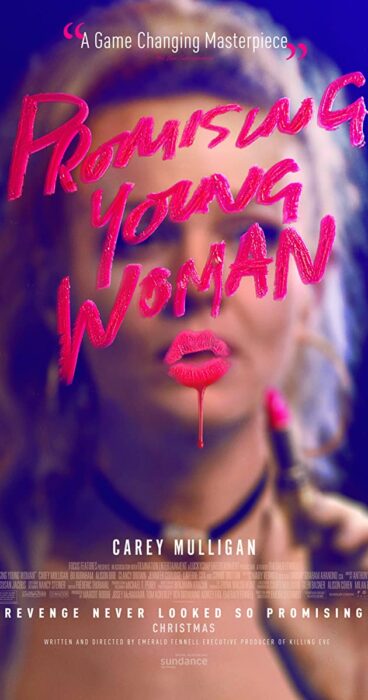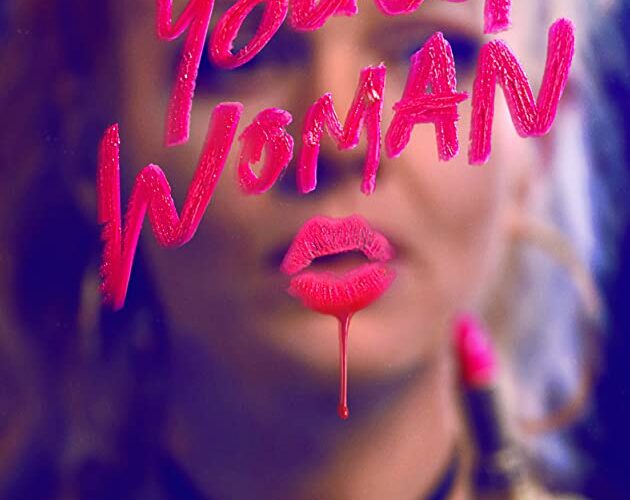
It doesn’t get much darker than Promising Young Woman, a twisted thriller about female revenge. Black as a moonless night and sharp as a jagged piece of shattered glass, this sobering, unsettling comedy ventures into territory that few viewers have traveled – and many may not wish to traverse.
The film opens in a preppy bar, where a dangerously inebriated young woman (Carey Mulligan) slumps on a couch, eliciting stares and crude comments from the predominantly male clientele. “She’s just asking for it,” jeers one. Another suggests, more tactfully, that “she is putting herself in a vulnerable position.” It appears to be a position that few men are willing to pass up. One takes Cassie to his place, steers her into the bedroom and starts undressing her. “Wait. What are you doing,” she woozily asks? When the man doesn’t stop, she suddenly bolts upright and, in a stone-cold sober voice, demands, “What are you doing?”
Written, directed and produced by British actress Emerald Fennell (“The Crown,” “Call the Midwife”), Promising Young Woman is one of the boldest and most audacious film debuts in recent memory. Beginning with its opening sequence, the movie takes one unexpected turn after another, raising issues of mental health, moral reckoning, justice, and society’s double-standard.
Night after night Cassie hits the bars, going after men who prey on women, even when the women in question have made themselves easy targets. Cassie wasn’t always so driven. Her future once held infinite possibilities, but the summer after completing her first year of medical school she hit a road block the size of a boulder. An A-student, she dropped out of school for reasons that only become clear as the film progresses. Again, the story veers from expectations, in that the ‘event’ that derailed Cassie isn’t the obvious one, although it’s close.
After dropping out, Cassie moved back into her parents’ house, stopped seeing friends and started working a dead-end job in a small coffee shop. Initially sympathetic, her parents think it’s high time she moved on – and out. For her 30th birthday they give her a suitcase; Cassie had forgotten it was even her birthday. One day she runs into Ryan (Bo Burnham), a former college and med school classmate who is funny, a bit of a klutz, and has a genuinely nice guy demeanor that slowly wins Cassie over. But when Ryan mentions some of their old classmates, one name stops her cold, setting her on an even more dangerous and self-destructive path.
Carey Mulligan gives an astonishing performance, slipping into the role like Cinderella stepping into the glass shoe. Fennell shines as both writer and director, although the mirror she holds up to the audience places all of us, perhaps especially women, in the uncomfortable position of recognizing that we, too, tend to blame the victim. Seeking to evade just such responsibility, one female character tells Cassie, “Hey, I don’t make the rules.”
Well, who does make the rules? It is a question — and a condemnation — that hangs over this film, as do issues of rage, pain, sorrow and mental stability. The ending is as shocking as it is clever, and it will leave you feeling unnerved, nauseas and either outraged or exhilarated. It is said that “revenge is a dish best served cold,” but at what price?
